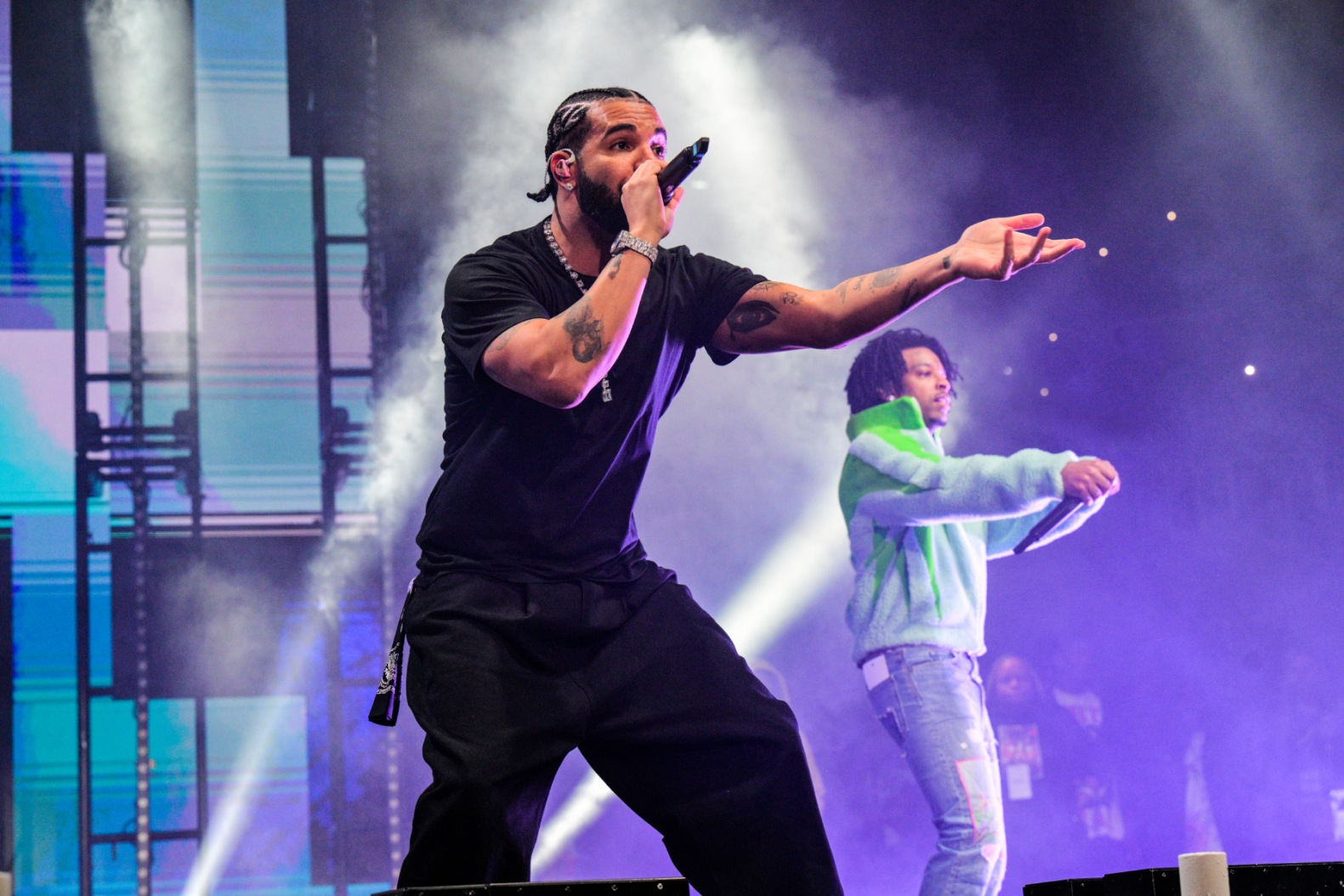The suit, filed in November, sought $4 million in damages but was settled for an undisclosed amount

Drake and 21 Savage perform onstage during "Lil Baby & Friends Birthday Celebration Concert" at State Farm Arena on December 9, 2022 in Atlanta, Georgia. PRINCE WILLIAMS/WIREIMAGE/GETTY IMAGES
The Vogue cover 21 Savage and Drake distributed both physically and digitally in promotion of their joint album Her Loss was sharp marketing, but it would have been smarter if they had gotten permission to use it as such. The duo has now settled the trademark infringement lawsuit filed against them by parent company Condé Nast for an undisclosed amount, though the publishing house initially asked for $4 million in damages.
“As a creative company, we, of course, understand our brands may from time to time be referenced in other creative works,” Condé Nast general counsel Will Bowes said in an internal staff memo, according to Semafor. “In this instance, however, it was clear to us that Drake and 21 Savage leveraged Vogue’s reputation for their own commercial purposes and, in the process, confused audiences who trust Vogue as the authoritative voice on fashion and culture.”
Bowes revealed that the company will bar future commercial use of the Vogue trademark via a permanent injunction, though the settlement with Drake and 21 Savage was enough to “bolster our ongoing creative output, including Vogue editorial.”
A rep for Drake did not immediately respond to Rolling Stone‘s request for comment.
The duo removed the Vogue cover from their social media pages after the lawsuit was filed in November, but physical copies – their cover imposed over a photoshopped version of a past issue – had already been distributed in person. Around the same time, Drake and 21 Savage faked a Saturday Night Live performance and a Howard Stern interview.
“Me and my brother on newsstands tomorrow!! Thanks @voguemagazine and Anna Wintour for the love and support on this historic moment. Her Loss Nov 4th,” Drake wrote on Instagram, an example of what Condé Nast noted as “explicit false statements” in the commercial use of Vogue‘s brand.
“What courts have generally said is that when they’re convinced that it’s art — which again, they might not be here — then they want some really compelling evidence that it’s going to cause harm to the trademark owner, usually by some explicitly false statement,” Rebecca Tushnet, a professor of the First Amendment at Harvard Law School, told Rolling Stone when the lawsuit was first filed.
“Now of course, that’s what we have here. [Drake] says, ‘I’m on the Vogue cover,’ and you have to know a lot more information to know that he’s not really on the Vogue cover. So even if the court treats it as art, he’s not [in] the clear. So this strikes me as something of an uphill battle for him. It’s an interesting question. Was it worth it? And maybe the answer is yes, there are some people for whom all publicity is good publicity.”
From Rolling Stone US.
From immersive photo walks to interactive dining experiences, these are the coolest events to bookmark…
As the High Priestess of Hard Techno debuts her frenetic warehouse sound in India, she…
The final two episodes of the singer-songwriter’s tour docuseries premiere on Dec. 23
Christopher Nolan’s adaptation of the iconic Greek tale will arrive in theaters next July
After calling for peace between Young Thug and Gunna, 21 Savage ignited a broader debate…
In a new profile of the 92-year-old Red Headed Stranger, Dylan offers his poetic take